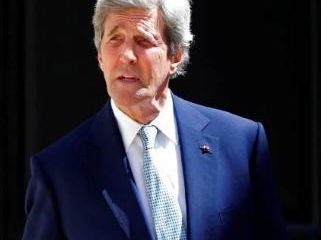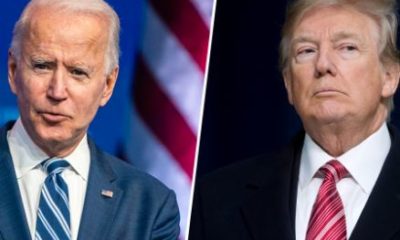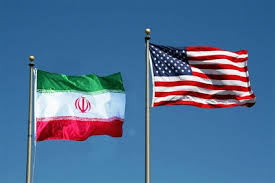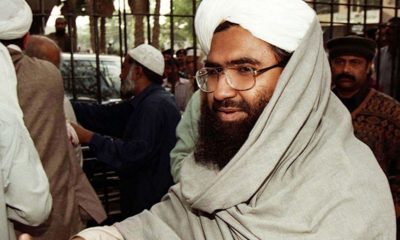World
Expansion of UNSC permanent membership gets broad support

By Arul Louis
United Nations: Expansion of UN Security Council permanent membership received the backing of a broad spectrum of nations at the General Assembly Friday echoing India’s call for reforming the “ineffective” body through text-based negotiations.
Four key groups as well as several countries lined up behind the push for quick action on the long-stalled reform process to add more permanent members to the Security Council, the most powerful organ of the world body that is now mired in inaction amid several crises.
Permanent members Britain and France reiterated backing for India getting a permanent seat, while the United States supported adding permanent members, dispelling any doubts about its stand.
Stressing the need for an urgent overhaul of the system, India’s Permanent Representative Asoke Kumar Mukerji said: “An ineffective Security Council has meant huge human, economic and environmental costs in terms of wars and conflicts, which the international community cannot justify.”
More than 60 million people have been affected by the “malfunctioning” of the Security Council, he added.
“Given the urgency,” he said negotiating meetings should be held every week. He asked General Assembly President Mogens Lykketoft to circulate the agenda for the reform talks from Sylvie Lucas, the newly appointed leader of the negotiation process.
With the momentum for reform picking up, Lucas declared her commitment to the September General Assembly resolution mandating Intergovernmental Negotiations (IGN). She said that while overhauling Security Council was one of the toughest areas of UN reform, members should not shrink from it but maintain the momentum that had been created during the last session.
Friday’s debate on equitable representation on the Security Council set the stage for the IGN process for the reforms that is to start in earnest next month.
To facilitate the talks, it now has a negotiating text approved last month by the General Assembly, marking a breakthrough in the reform process, which was bogged down by the absence of a text to base the discussions.
Leading off the debate, the 54-member African Union, whose leaders just completed a summit meeting with India, called for adding permanent and elected categories of members to the Security council.
Speaking on the African Union’s behalf, Sierra Leone’s Permanent Representative Vandi C. Minah made a case for the expansion saying it was necessary to reverse “the historical injustice done to the continent as being the only region not represented in the permanent category”.
“Any delay would mean further perpetuating and compounding injustice,” he added.
Representing the reform advocacy group known as L.69 comprising 42 nations of Africa, Latin America and the Caribbean, Asia and the Pacific, Saint Lucia’s Permanent Representative Menissa Rambally said that expanding both the permanent and non-permanent categories of membership “is imperative to better reflect contemporary world realities”.
She gave the General Assembly an ultimatum if the text-based negotiations did not move forward. “We are prepared to look at other options which would yield the results desired by the vast majority of the UN membership,” she warned.
The Arab League also threw its lot with those demanding expansion of permanent and elected membership. Kuwaiti Permanent Representative Mansour A.S. al-Otaibi, who spoke on behalf its 22 members, said the reform should be achieved through a majority decision. The League wanted permanent and proportional non-permanent membership, he added.
The 15-member CARICOM of the Caribbean countries backed adding permanent and elected members to the Security Council, Guyana’s Permanent Representative George Talbot said.
Like the African Union, CARICOM opposed the veto right for permanent members, but if it was retained both said that new permanent members should also have it.
In a statement on behalf of G-4, a grouping of India, Brazil, Germany and Japan, which mutually support each other’s bid for permanent Security Council seats, German Permanent Representative Harald Braun said the adoption of the negotiating text was “a veritable milestone” on the way to achieving “a more representative, more legitimate and more effective Security Council”.
“We cannot afford to lose the newly gained momentum in support of Security Council reform in recent months,” he added.
Britain’s Deputy Permanent Representative Peter Wilson offered support to the permanent seat candidacies of Brazil, India, Germany, and Japan, and for permanent African representation. But he added that the size of the expanded Council must not reduce its ability to act decisively.
France’s Deputy Permanent Representative Alexis Lamek said Paris considered the new powers that had the ability to shoulder the responsibilities of permanent membership and supported the candidacies of the G-4.
US Deputy Permanent Representative Michele Sison said that Washington was open to a “modest” increase in the number of permanent and elected members. A country’s ability and willingness to contribute to international peace and security would have to be a qualification for permanent membership, she added.
Russia’s stand was ambiguous. Permanent Representative Vitaly Churkin said the Security Council would benefit from an expanded, strengthened Security Council that was limited to about 20 members. He did not specifically mention adding permanent seats.
Liu Jiyeyi, China’s permanent representative, said Beijing also supported “reasonablea¿ reform with more representation, especially for African countries, and a role for medium and small nations in Security Council decisions.
Japan’s Charge d’Affaires Yoshifumi Okamura said “the train for reform” with Lucas as “the driver” was ready and “we now have more than 120 passengers”.
“Every passenger is equally treated and well seated,” he added. “Seats still remain for more passengers who have not yet gotten on the train.”
Turning to those opposing the expansion of permanent members, Okamura referred to the historic injustice to Africa and asked: “What is their answer to the aspiration of our African friends without having them as permanent members?”
After the debate, Mukerji expressed satisfaction with the proceedings in which over 60 countries took part.
“The debate was extensive and participated in by all member states who have been active on this issue especially those who participated in creating the (negotiating) text,” he told IANS. “Now the dynamics of the process will be revealed when the IGN convenes in November.”
“We have appealed to those still outside the (negotiating) text to engage in the IGN which now moves into negotiations on the text,” Mukerji said.
National
Foodman Vishal Singh Honored for Hunger Free World Mission in Bangkok

Lucknow: Vishal Singh, a renowned social worker from Lucknow, also known as Foodman, has once again made India proud. He was honored by the Happy Hands Gloves Cooperative Limited Company in Korathai, Thailand, for his work with the Hunger Free World Mission.
The Hunger Free World Mission’s meeting was held in Korathai, Thailand, under Vishal Singh’s leadership. Representatives from several countries, including Mr. Raja Dwivedi (Managing Director of Happy Hands Gloves Limited), Thailand Coordinator Mr. Raja Mishra, and member Mr. Varun Singh, attended the event.

Under Vishal Singh’s leadership, the attendees took a pledge to work together toward creating a hunger-free world.
Speaking on the occasion, Vishal Singh explained that the main goal of the Hunger Free World Mission is social participation. He said the mission is not just about feeding people but also about meeting other basic needs of those who are struggling. The mission focuses on helping families of terminally ill patients in hospitals by providing food and shelter. It also works to fulfill essential needs like education, jobs, and care for the elderly.
For the last 16 years, the Vijay Sri Foundation has been providing free services, benefiting thousands of people. Vishal Singh highlighted that the mission aims to gain global recognition like other organizations such as WHO, WWF, and Red Cross, which work for social causes.
During this meeting, Vishal Singh was appointed as the Chairman of the Hunger Free World Mission by representatives from various countries. They also discussed holding regular meetings in different countries to push the mission forward.
Business tycoon Dr. Abhishek Verma has also supported this humanitarian mission, vowing to promote the idea of “Seva Parmo Dharma” (Service is the highest duty) worldwide. Vishal Singh praised him, stating that people like Dr .Abhishek Verma inspire others to work for the betterment of society.
Recently, Romania’s Ambassador, Mr . Daniela Sezonov Ţane, invited Vishal Singh to the Romanian Embassy in Delhi, where they discussed the mission in detail. Impressed by his humanitarian work, she honored Vishal Singh and invited him to Romania to take the mission forward .
Food man Vishal Singh has been serving the people of India for the past 16 years. Through the Vijay Sri Foundation, he provides free meals to cancer patients & their families ,shelter, and education for women & children along with running free old-age homes in Lucknow.
In addition to his humanitarian work, Vishal Singh also addresses issues like crime and corruption through his role as Chairman of Seva Path Media and Managing Director of Vijay Sri Foundation.

During the COVID-19 pandemic, Vishal Singh and his team worked tirelessly to provide food and help to the needy, including starving children, elderly citizens, and pregnant women. Despite contracting the virus himself, he continued to assist others after his recovery. He even created a life-saving oxygen regulator using household items, which was praised by doctors both in India and abroad.
In his address at the meeting, Vishal Singh spoke about his mission to create a hunger-free world. He pointed out that India’s large population, along with issues like unemployment and poverty, has caused the country to fall on the Hunger Index. He urged people to contribute just one handful of grains daily to help create a hunger-free world.
He concluded by saying that through social participation, we can empower the people around us, meet their basic needs, and work together to build a stronger, more prosperous, and developed society.























